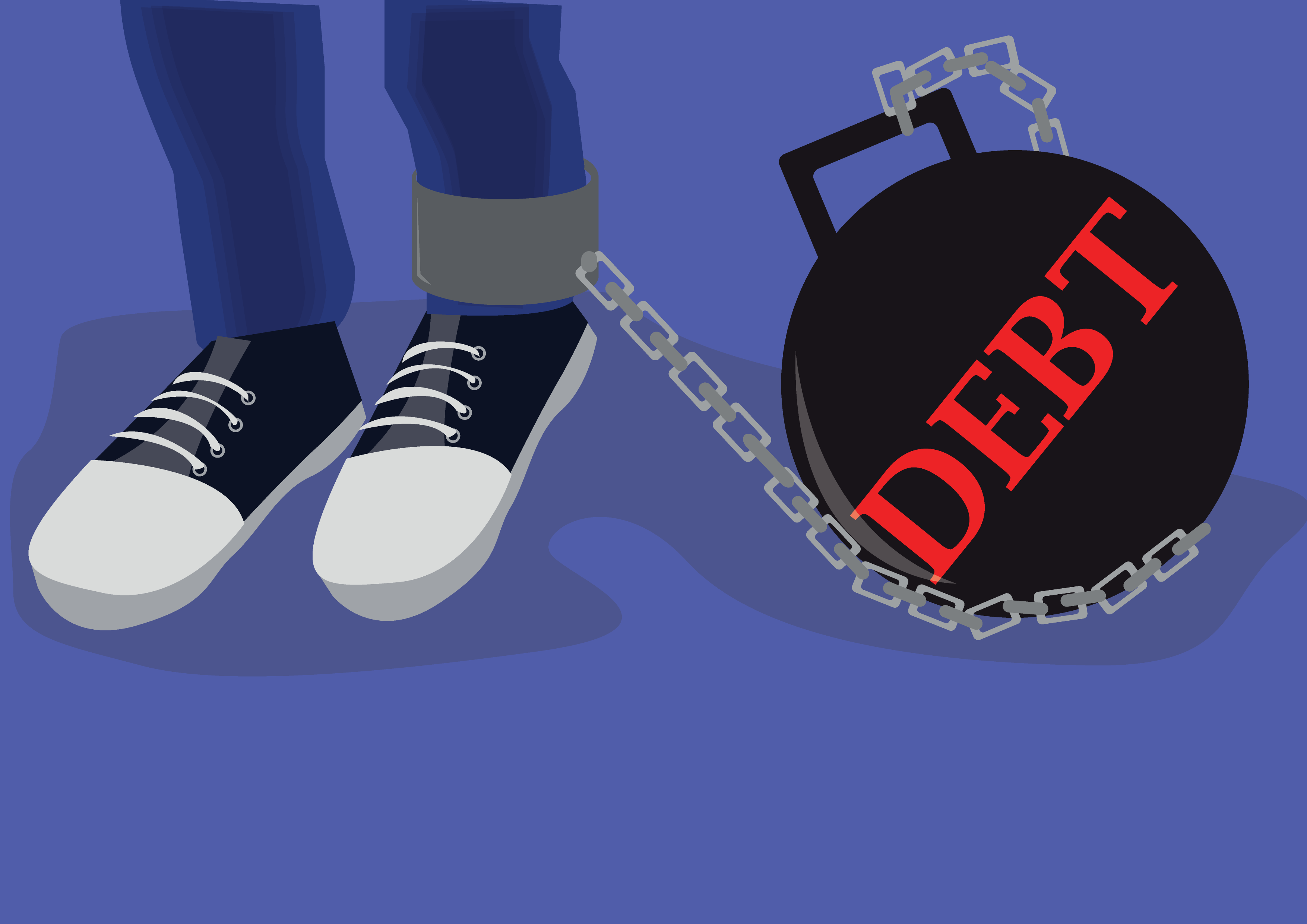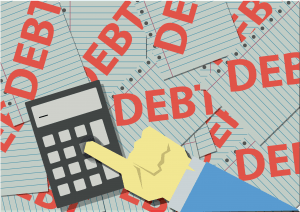
Money Management Tips
5 Tips for Defeating Your Debt ASAP
Did you know that Americans collectively hold more than a trillion dollars of credit card debt? As a result, it is expected that cardholders will pay upwards of $122 billion in credit card interest this year. Meanwhile millions of adults are ready to escape from these statistics and work towards becoming debt-free — but how can you accelerate this process and reach the finish line even faster?
If you’re looking to get out of debt and do it as quickly as possible, here are some things you should do (and a few you shouldn’t):
 5 Must-Dos for Paying Off Quickly
5 Must-Dos for Paying Off Quickly
Diagnosis Your Debt Problem
In order to get yourself out of debt, you’ll first need to know what you’re up against. To do this it is often helpful to create a table with important information such as the card or account name, the balance, the APR, etc. (spoiler: this will come in handy for the next tip). This will help give you a full picture of what you owe and allow you to start figuring out your next steps.
Pick Your Payoff Plan
There are several different methods of attack when it comes to credit card debt, including the popular, Ramsey-approved Debt Snowball. This particular plan calls for cardholders to put as much as they can toward paying off their smallest card balance while paying the minimum on the rest. Then, as you conquer each card, you continue the process, working your way to your largest debt. The idea is that this method will allow for small wins along the way and keep you encouraged to continue.
However if it’s savings and speed you’re after, you might consider a more aggressive plan. Sometimes referred to as the Debt Avalanche method, this plan also has you pay the minimums on the majority of your cards but, instead of tackling your balances according to size, you start by taking out the cards carrying the highest interest rate. With this plan you’ll be able to wipe out your most expensive debt first and save yourself money. As for downsides, your highest APR card might also carry the largest balance, meaning you’ll have a major foe to fight off the bat — but, if you are victorious, you’ll be handsomely rewarded.
Ultimately the best debt payoff plan is the one you’ll actually stick with. Therefore, whether you choose the Debt Snowball, Debt Avalanche, or some other method, just make sure you have a plan that will work for you.
Attack Your Budget from Both Sides
To pay off debt as quickly as possible you’ll obviously want to earmark as much of your income as you can to put toward your balances. This is where having a budget and looking for ways to trim your spending can really come in handy. Whether you utilize a spreadsheet to breakdown all of your finances or rely on apps such as Mint or Personal Capital to do the hard work for you, it’s important to review all of your spending and income so you know what adjustments can be made. Rather than making across the board trims of equal size, look for certain categories where you can cut back, subscriptions that can be canceled, or other ways you can save. It also helps if you can make big changes for big payoffs — such as cord-cutting or even moving — than to nickel and dime yourself in small spending categories.
Despite the usual emphasis on the spending side of the equation, sometimes it may make sense to put equal focus on the income part. For example, starting a side hustle, taking on extra hours at work, asking for a raise, etc. can help you pay off your debt faster by bringing more cash flow to your budget. In terms of side hustles, you’ll want to consider something with low startup costs such as joining one of the many “gig economy” services that now exist. Meanwhile, before you go asking for a raise, make sure to do your research and come up with a compelling case why you deserve the additional compensation (chances are “I need more money to pay off my debt” won’t cut it). Of course these may not be an option for everyone depending on your current schedule, place of employment, or other factors but, if you can find a way, the one-two punch of increased income and reduced spending will help you to knock our your debt fast.
Allocate Your Extra Funds
Speaking of extra income, there are times where you come upon money you weren’t expecting. This could be a tax refund, a bonus from your employer, or perhaps even a settlement payout from Equifax. While such windfalls are famous for inspiring splurges, overcoming these instincts and putting these funds toward your debt can be far more valuable. In addition to the practicality of saving you money on interest, there’s also the mental benefit of putting you that much closer toward reaching your goal.
Automate as Much as Possible
One of the best ways to save is to set aside money without you even having to think about it. That’s why, in addition to actively sticking to a budget, it’s also extremely helpful to passively automate savings you can then use to pay down your debts. This could be as simple as setting up automatical transfers from your checking to your savings via your bank, using apps like Long Game or Clarity Money to do the same, or trying other apps such as Digit that are designed to help you painlessly save. There are also apps like Tally that are built specifically to help you pay down your debt as quickly and easily as possible.
On top of automatic savings, you may also find value in setting up automated credit card payments. This will help ensure you’re not paying late, saving you potential fees or credit score hits in the process. That said the downside is that you’ll need to make sure you have the money on hand in your checking account so that you don’t end up overdrafting by mistake.
 What Not to Do When Trying to Pay Down Debt
What Not to Do When Trying to Pay Down Debt
Keep Spending
It almost goes without saying but trying to pay down your credit cards while still using said cards is never a good idea. Not only can continually adding to your balance be discouraging when you’re trying to do away with your debt but using cards can also tempt you to overspend. If you really want to change your habits, perhaps going cash-only (and using e-checks or debit cards for online bills) for a time can help to reign in your spending while you work toward becoming debt-free.
Deprive Yourself of Everything
The desire to pay down debt ASAP isn’t exactly a bad thing but it is easy to get carried away. Much like crash diets that never stick for long, attempting to squeeze every last penny out of your budget can backfire. Rather than disallowing yourself to spend anything until you’re out of debt, hold onto a few “priority purchases” that will help alleviate that feeling of sacrifice. Obviously these minor splurges should be in reason but, when done properly, they can prevent you from burning out on your road to debt freedom.
Invest/Gamble
You’ve probably heard time and time again that investing is the key to growing your money and building wealth. While that is 100% true, looking to investing as a way to help you conquer your debt is often misguided. That’s because trying to utilize short-term investments to increase your funds is often more akin to gambling than actual investing.
Even if your short-term investments do produce gains, it’s important to consider the interest you’re paying in the meantime. For example, a great year on the stock market might result in a 25% increase but a single credit card might carry an interest rate of 25% or higher. In other words, you could be giving up your gains or even ending up underwater by trying to strike it rich. Instead, it’s almost always better to funnel your money toward paying off your debt, getting your other finances in order, and then coming up with a solid, long-term investing plan.
Becoming debt-free is undoubtedly easier said than done. At the same time, there are several steps you can take to set yourself on the path toward success — and at an accelerated rate. While planning, budgeting, hustling, and automating can help you in your pursuit, spending, depriving, and gambling will only slow you down. Ultimately, with the right road map and enough determination, you too can escape the land of credit card debt once and for all.





